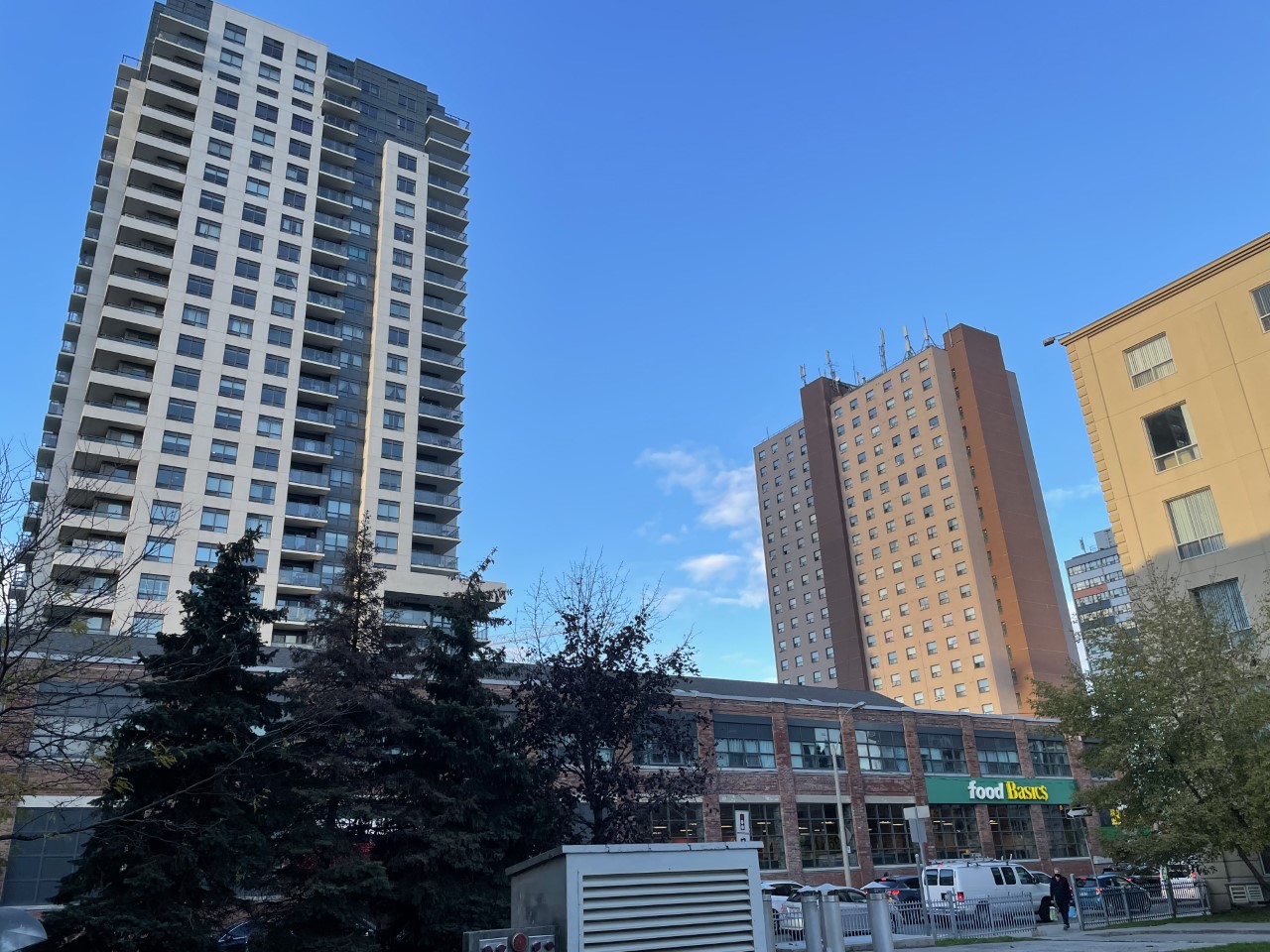By: Grace Ingraham

Credits: Courtesy of Cameron Butler.
How does a petition about a grocery store connect to gentrification processes in the Toronto area? This is the question Cameron Butler, a PhD student at York University, found himself addressing when he moved to the Junction Triangle area in Toronto. Cameron recently presented his paper, “Another Discount, Garbage Grocery Store: Food Inaccessibility as Gentrification Strategy” during a panel at the 2021 Food Matters and Materialities Conference.
During his presentation, Cameron delved into how condo owners living in the Junction Triangle moved there with expectations that area was ‘up and coming’ and were disappointed to learn that Metro Inc. reversed their decision to open a Metro store, opting for a Food Basics instead. A petition was then created by condo owners to try to convince Metro to undo this decision.
Initially, Cameron thought the petition was absurd and wondered why anyone would want to pay three times more for the same cauliflower at Metro. It was while taking a course on food justice at York University that Cameron realized the petition connected to issues surrounding food accessibility and gentrification.
Gentrification is the process where low-income areas see an influx of wealthier residents moving in. This attracts new businesses and housing developments to the area often displacing the original residents who now can no longer afford to live there. The original decision to open a Metro would have contributed to the ongoing gentrification processes in the Junction Triangle by bringing in higher priced food options, whereas Food Basics offers more affordable options that better serve the now mixed income status of the area.
Unfortunately, not all Junction Triangle residents saw the decision this way. Cameron’s analysis of the petition’s comments revealed a desire for residents to have a grocery store that not everyone in the area could afford. These sentiments of exclusivity were troubling for Cameron as he felt that food access was being used as a weapon to further gentrification. This is because without affordable food options, the low-income residents would be more likely forced to move away from the area. For example, commentors on the petition referred to Food Basics as a ‘low-end storefront’ that ‘lacked quality’ and would ‘devalue’ the progress of the neighbourhood.
In the media, the petition received backlash that was critical and sometimes mocking towards the petition signers. This resulted in the petition being unsuccessful and Metro Inc. standing by its decision to open the Food Basics. Even though the petition signers did not get what they hoped for, it’s still important to recognize that if the petition been successful a ‘food mirage’ would have been created in the area.
Cameron explains that mirages are food landscapes where “if you look at it, there are a lot of food options, and you might think the neighborhood is going to have really high food access. But instead, there’s an economic barrier to accessing them.” Food mirages are common in gentrifying neighbourhoods and the Food Basics decision is a rare example where gentrification was not prioritized.
Currently, Cameron is considering the broader impacts he wants his research to have. One hope is that his work helps shift how people think about urban development and food access. Another hope is that his research generates an increased awareness about how gentrifiers are actively attempting to exert their power in communities. Cameron encourages everyone to value and consider issues in their local communities more closely as this project evolved from him noticing his own surroundings.
The Food Matters and Materialities team sincerely thanks Cameron Butler for sharing his work and participating in the conference.